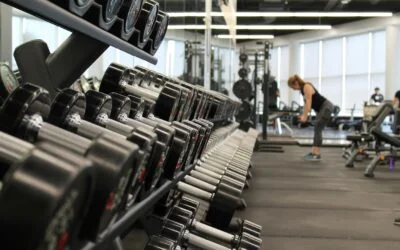Ridesharing has become a staple of Atlanta’s transportation scene. Whether catching an Uber to Buckhead’s restaurants or booking Lyft for a Braves game at Truist Park, many Atlantans rely on these services daily. Yet the ease and convenience of ridesharing can quickly turn into chaos if a crash occurs. When you’re injured as a passenger (or as a pedestrian struck by a rideshare vehicle), the legal landscape differs from a typical car wreck. Between multiple insurance policies, corporate liability questions, and varying state requirements, you need a clear roadmap to protect your rights. Below are seven critical steps to follow if you’re hurt in a Lyft or Uber accident in Atlanta.
1. Seek Immediate Medical Attention and Document Injuries
No matter how minor the collision seems, prioritize your health first. Rideshare crashes often involve sudden stops, side impacts, or swerves that can cause whiplash, concussions, or hidden internal injuries. Take these actions at once:
- Call 911 or Visit an Emergency Department: Secure a full medical evaluation. Not all injuries appear immediately—symptoms like dizziness, blurred vision, or abdominal pain can manifest hours later.
- Keep Thorough Records: Maintain copies of all medical reports, diagnostic tests (X‑rays, MRIs), prescriptions, rehabilitation notes, and receipts. Document pain levels, emotional distress, and limitations on your daily activities. When insurers attempt to minimize your claim, robust medical documentation provides the evidence you need for fair compensation.
Medical records are the backbone of any personal injury case. Without them, demonstrating causation—tying your injuries directly to the ride’s crash—becomes extremely difficult.
2. Report the Crash to Rideshare and Law Enforcement
In Georgia, any collision resulting in injury or property damage must be reported to law enforcement (O.C.G.A. § 40‑6‑273). At the scene:
- Alert the Police: Having an official crash report is indispensable. It records who was involved, witness statements, vehicle positions, and any citations. Request a copy of this report from the Atlanta Police Department’s Records Division within 30 days.
- Notify the Rideshare App Immediately: Open the Uber or Lyft app, find the “Help” or “Your Trips” section, and select “Report an Accident.” This ensures they log the incident, which triggers the company’s insurance protocol. Rideshare companies typically require prompt notification to engage their primary insurance coverage.
Following both steps promptly prevents delay arguments later—insurance adjusters might try to deny coverage if they claim you failed to “timely report” the incident.
3. Identify All Possible Insurance Policies
Unlike a standard two‑vehicle collision, rideshare accidents involve multiple layers of insurance:
- Driver’s Personal Auto Policy: If the driver’s rideshare app was off (not logged into passenger service), their personal auto insurance is primary. Georgia requires all drivers to carry at least $25,000 in bodily injury liability per person and $50,000 per accident (O.C.G.A. § 33‑7‑11).
- Rideshare Company’s Contingent Liability Coverage: From the moment the driver turns on the app to the conclusion of the trip, most rideshare companies maintain a $1 million liability policy. This coverage protects passengers, third‑party injured parties (pedestrians, other motorists), and uninsured/underinsured motorists. Uber and Lyft generally offer:
- App On, No Passenger: $50,000 per person/$100,000 per accident for bodily injury and $25,000 for property damage.
- Passenger On Board or En Route to Pick Up a Passenger: $1 million liability coverage.
Understanding which policy applies at each stage of the crash is critical. An experienced attorney can parse these layers to maximize your recovery.
4. Preserve Evidence: Photos, Witnesses, and App Data
Strong evidence is essential to building a rideshare injury claim. Take these steps:
- Photograph the Scene: Capture vehicle damage, road conditions, visible injuries, traffic lights, skid marks, and weather conditions. If possible, take photos of both the rideshare vehicle’s interior and exterior.
- Gather Witness Info: Request contact details of anyone who saw the collision—other drivers, pedestrians, or bystanders. Written or recorded witness statements can corroborate your version of events.
- Save App Records: Screenshot trip details (date, time, pickup and drop‑off locations). Note the driver’s name, vehicle make/model, and license plate. If you have any in‑app messages or ride receipts, preserve them. This data links your presence in the vehicle to the crash and triggers the correct liability coverage.
Timely preservation of evidence prevents disputes over fault and ensures that crucial details aren’t “lost” when a driver turns off the app or deletes trip history.
5. Determine Fault and Obtain the Crash Report
Georgia follows a comparative negligence system (O.C.G.A. § 51‑12‑33), meaning any compensation you receive is reduced by your percentage of fault. If you were texting while walking into traffic or the driver ran a red light, your share of liability may be determined accordingly. To establish fault:
- Review the Police Report: Look for citations issued to the rideshare driver or others. Citations for speeding, failure to yield, running a stop sign, or distracted driving strongly support your case.
- Consult Accident Reconstruction Experts: In complex crashes, experts analyze vehicle trajectories, braking distances, and damage patterns to clarify which party was negligent.
Having an attorney who knows the nuances of Georgia’s fault statutes ensures that you’re not unfairly blamed for someone else’s negligence.
6. Engage an Experienced Personal Injury Attorney
Navigating a rideshare claim without counsel can lead to mistakes—admitting fault in a statement, missing deadlines, or underestimating your true damages. Gunn Law Group offers these key advantages:
- Thorough Case Evaluation: We’ll review your medical records, app data, police report, and witness statements to identify all responsible parties—rideshare company, negligent driver, or even another motorist who caused a chain reaction collision.
- Maximizing Your Recovery: Beyond immediate medical bills, we calculate future surgery costs, ongoing therapy, lost earning capacity, and pain and suffering. We negotiate directly with high‑powered insurance defense teams, refusing lowball settlements.
- Timely Filing: Georgia’s two‑year statute of limitations (O.C.G.A. § 9‑3‑33) applies even to rideshare accidents. Missing this deadline forfeits your right to sue, so prompt action is essential.
- Client‑First Communication: We handle all correspondence, keep you updated on progress, and ensure you focus on recovery rather than paperwork.
With our legal team on “Your Trips” from day one, you avoid pitfalls that could jeopardize your claim.
7. Negotiate or Litigate: Pursuing Fair Compensation
Once liability is established and your total damages calculated, negotiations begin:
- Demand Letter to Rideshare Carrier: We submit a detailed package—medical records, expert opinions, wage statements, and app trip logs—demanding your full recovery under the applicable policy.
- Settlement Discussions: Insurance adjusters often start with low offers. Using robust evidence, we push back, highlighting driver negligence and corporate duty to maintain safe vehicles.
- Filing a Lawsuit if Necessary: If negotiations stall, we file suit in the appropriate Atlanta venue. Our attorneys have trial experience and are prepared to present your case to a jury. The threat of trial often motivates insurers to reach a fair settlement.
Whether your case resolves in weeks or proceeds through litigation, our goal remains constant: secure every dollar you deserve so you can move forward without financial stress.
Call the Big Gunn If You’re Injured in a Rideshare Crash
A rideshare accident can disrupt your life, causing physical pain, mounting bills, and emotional distress. You deserve more than a “quick check”—you deserve full compensation. If you or a loved one is injured while riding in or struck by a Lyft or Uber in Atlanta, don’t wait. Call the Big Gunn at 888‑BIG‑GUNN for a free consultation. Gunn Law Group will champion your case from “Hello, driver” to “Justice served.”




